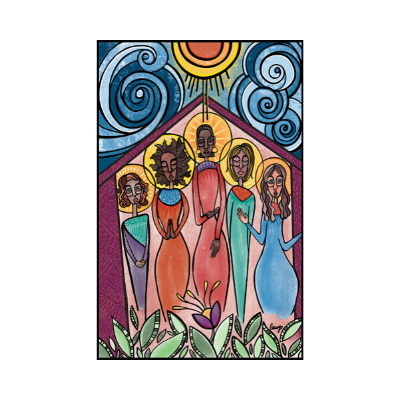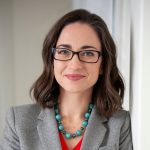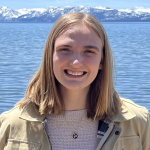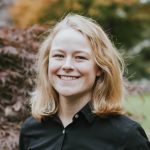Linked-In Learning, Fall 2024

October 20 – November 17, 2024
9:30 a.m. | Assembly Room
A queen, mothers of nations, and advocates for themselves and other women are among those we will meet during these weeks. They employ faithfulness and savvy as they navigate a life at the margins. Let’s learn from these women together as we ask challenging questions and remember other women who have helped make a way for us in our own lives.
“Linked-In Learning” helps us explore the same stories from multiple perspectives. In these classes members and friends of the congregation will lead us through the same texts the preachers will take up in worship and small groups will have engaged the week prior. Let’s learn together!
Audio recordings will be posted below each class description.
October 20 | Elaine James
Women, Poetry and God
Proverbs 31 (selected verses)
How can the Bible be a resource for women? How can women and folks on the margins engage texts that are patently androcentric and frankly difficult to read? This session considers the poem about the “worthy women” in Proverbs 31 as an example of how poetry can both reinforce patriarchal ideals and also imagine liberative pathways. Part of the craft of the poem is a celebration of the craft and handwork of women—creativity itself is enshrined in Proverbs as a divine force, in which we are all invited to participate.
 Elaine T. James is Associate Professor of Old Testament at Princeton Theological Seminary. Her research interests are in biblical Hebrew poetry, ideas of art in the ancient world, and issues of land, ecology, and gender. She is the author of Landscapes of the Song of Songs: Poetry and Place (Oxford University Press, 2017), and An Invitation to Biblical Poetry (Oxford University Press, 2021).
Elaine T. James is Associate Professor of Old Testament at Princeton Theological Seminary. Her research interests are in biblical Hebrew poetry, ideas of art in the ancient world, and issues of land, ecology, and gender. She is the author of Landscapes of the Song of Songs: Poetry and Place (Oxford University Press, 2017), and An Invitation to Biblical Poetry (Oxford University Press, 2021).
October 27 | Isabella Shutt
The Daughters of Zelophehad
Numbers 27:1-11, Joshua 17:3-6
Mahlah, Noah, Hoglah, Milcah, and Tirzah are known as the Daughters of Zelophad. They are remembered for advocating on their own behalf for the inheritance of their late father’s land. We will use Dr. Wil Gafney’s practice of “sanctified imagination” to enter the text and draw out its revelations of God’s inclusion and the stories’ connections to our own embodied knowledge. Where were these women when their covenant with Moses was broken by the temple’s leadership? Why are they included in the listing of land inheritance if their familial line seems to stop? Who was their mother?
 Isabella Shutt is a first-year M.Div. student at Princeton Theological Seminary and recent graduate of Princeton University. Originally from western North Carolina, she became a member of Nassau after worshiping weekly with Princeton Presbyterians at Breaking Bread. Isabella currently serves as the Intern for the Adult Education and Missions and Outreach Committees. She is the eldest of three daughters and brings this perspective to her readings of women in the Old Testament.
Isabella Shutt is a first-year M.Div. student at Princeton Theological Seminary and recent graduate of Princeton University. Originally from western North Carolina, she became a member of Nassau after worshiping weekly with Princeton Presbyterians at Breaking Bread. Isabella currently serves as the Intern for the Adult Education and Missions and Outreach Committees. She is the eldest of three daughters and brings this perspective to her readings of women in the Old Testament.
November 3 | Leslie Virnelson
Ruth and Naomi: Identity and Belonging
The Book of Ruth
We will discuss identity and belonging in the story of Ruth from multiple angles of religion, ethnicity, family, and age. As you read Ruth 1-4 ahead, consider how various characters change their identities throughout the story.
 Leslie Virnelson is a Democracy Fellow at Interfaith America through a postdoctoral partnership with Princeton Theological Seminary (PTS) and a scholar of the Hebrew Bible/Old Testament. Her forthcoming book with Oxford University Press is Fruit of Her Hands: Women, Work, & Society in the Hebrew Bible. She has taught classes for masters and undergraduate students at PTS, Princeton University, Mercer University, Union Theological Seminary, and Union Presbyterian Seminary. She also served as the interim director of the Center for Theology, Women, & Gender at PTS from 2020-2023, organizing events and curricula to educate public and scholarly audiences on the intersections of religion and gender. She lives in West Windsor, NJ and enjoys hiking, foraging, and fermentation.
Leslie Virnelson is a Democracy Fellow at Interfaith America through a postdoctoral partnership with Princeton Theological Seminary (PTS) and a scholar of the Hebrew Bible/Old Testament. Her forthcoming book with Oxford University Press is Fruit of Her Hands: Women, Work, & Society in the Hebrew Bible. She has taught classes for masters and undergraduate students at PTS, Princeton University, Mercer University, Union Theological Seminary, and Union Presbyterian Seminary. She also served as the interim director of the Center for Theology, Women, & Gender at PTS from 2020-2023, organizing events and curricula to educate public and scholarly audiences on the intersections of religion and gender. She lives in West Windsor, NJ and enjoys hiking, foraging, and fermentation.
November 10 | Jonathan Shenk
Sarah and Hagar: Re-imagining Paths to Healing
Genesis 16:1-16, 21:1-21
Sarah is the matriarch of Jews and Christians, while Muslims trace their lineage through Hagar. All three faiths claim Abraham as their forefather. These early biblical stories sow the seeds of both historic and present-day conflicts among Christians, Muslims, and Jews. But could they also offer paths to healing? Sometimes we get stuck with unworkable solutions because we are asking the wrong questions.
 Rev. Jonathan C. Shenk is a minister and entrepreneur. He is the owner of Greenleaf Painters, a local painting company. He is also a certified spiritual director and founding member of the Trenton Microloan Collaborative, a joint venture of Nassau and Westminster. He lives in Princeton Junction with his wife, Cynthia Yoder. Their son, Gabriel, is a high school English teacher and frontman for Sonoa, an indie rock band.
Rev. Jonathan C. Shenk is a minister and entrepreneur. He is the owner of Greenleaf Painters, a local painting company. He is also a certified spiritual director and founding member of the Trenton Microloan Collaborative, a joint venture of Nassau and Westminster. He lives in Princeton Junction with his wife, Cynthia Yoder. Their son, Gabriel, is a high school English teacher and frontman for Sonoa, an indie rock band.
November 17 | Joseph Kwan
Esther: Courage and Power
The Book of Esther
According to ChatGPT, the lessons that we can learn from Esther include courage, faith, wisdom, selflessness, leadership, divine timing, and advocacy. But is that all? What else can we learn from Esther? The story of Esther is interesting not only because of its content but also because it reveals the patriarchal structure of Ancient Near Eastern society, the roles of women in different systems, and various power dynamics. This time, we will try to look at it from a new perspective, putting ourselves in Esther’s experience and reflecting on what meaning this story can have for us today.
There is no recording for this class.
 Joseph Kwan (he/him) is currently a final year Master of Divinity student at Princeton Theological Seminary, and he joined Nassau Presbyterian in 2022. Joseph is originally from Hong Kong, where he was born, raised, educated, and lived for most of his life. Before coming to the US for ministerial formation, he studied theology for four years in Hong Kong. His living and educational experience in Hong Kong gave him a special lens through which to approach the scriptures and Christian tradition from a post-colonial and East Asian perspective. He is a candidate for ordained ministry in the Presbyterian Church (USA) under care through our church.
Joseph Kwan (he/him) is currently a final year Master of Divinity student at Princeton Theological Seminary, and he joined Nassau Presbyterian in 2022. Joseph is originally from Hong Kong, where he was born, raised, educated, and lived for most of his life. Before coming to the US for ministerial formation, he studied theology for four years in Hong Kong. His living and educational experience in Hong Kong gave him a special lens through which to approach the scriptures and Christian tradition from a post-colonial and East Asian perspective. He is a candidate for ordained ministry in the Presbyterian Church (USA) under care through our church.
